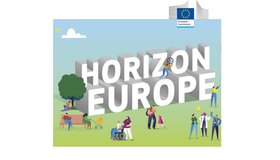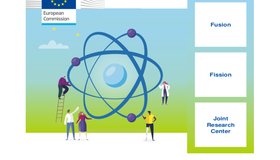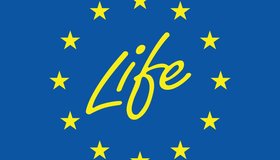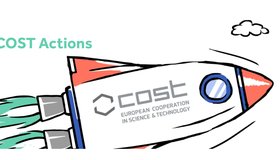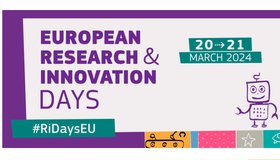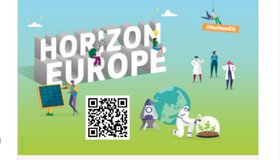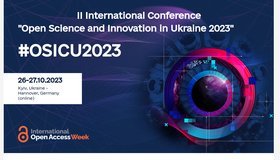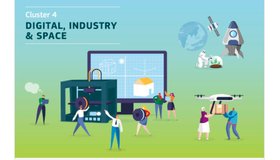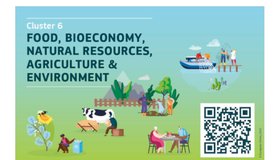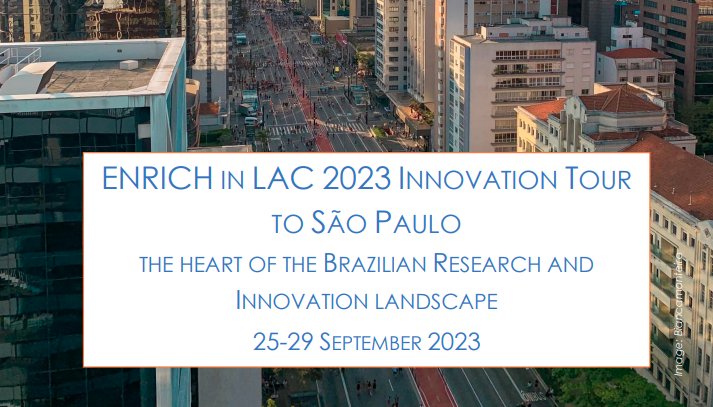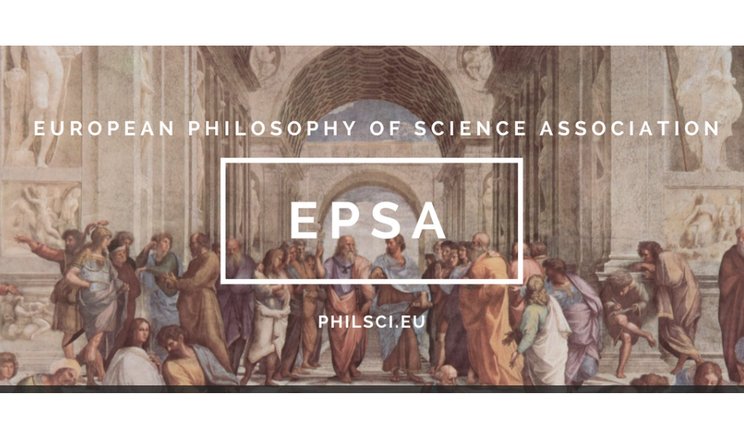
National portal of
international scientific and technical
cooperation
Building an innovative Ukraine
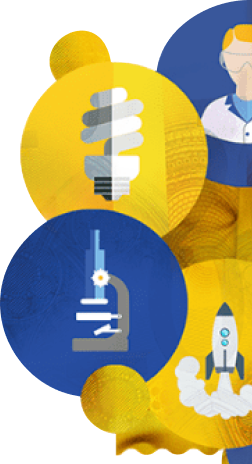
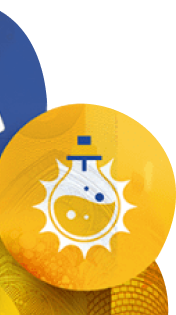
Програми міжнародного співробітництва
National Portal for International Scientific and Technical Cooperation
Informational support for teams wishing to join cooperation within the framework of international scientific and technical cooperation programs.

Найближчі заходи
Програми міжнародного співробітництва
Перелік ключових напрямків та піднапрямків співробітництва за кожною із програм
Horizon Europe is the ninth program for funding research and innovation projects of the European Union in 2021-2027 with a budget of €95.5 billion.
Детальніше про програму
Excellent Science
The first pillar of Horizon Europe - Excellent Science - supports frontier research and breakthrough scientific ideas, teams up the best researchers from Europe and beyond and equips them with skills and word-class research infrastructures.
Дізнатись більше
The European Research Councilis the premiere European funding organisation for excellent frontier research.
The Marie Skłodowska-Curie Actions are the EU flagship programme for doctoral and postdoctoral training, equipping researchers with new knowledge and skills through mobility across borders and exposure to different sectors and disciplines.
Research infrastructures are facilities that provide resources and services for the research communities to conduct research and foster innovation in their fields.
Global Challenges and European Industrial Competitiveness
The pillar 'Global Challenges and European Industrial Competitiveness' is established through clusters of research and innovation activities, in order to maximise integration and synergies across the respective thematic areas.
Дізнатись більше
Areas of intervention: health throughout the life course; environmental and social health determinants; non-communicable and rare diseases; infectious diseases including poverty-related and neglected diseases; tools, technologies and digital solutions for health and care including personalised medicine; health care systems.
Areas of intervention: democracy; cultural heritage; social and economic transformations.
Areas of intervention: disaster-resilient societies; protection and security; cybersecurity.
Areas of intervention: manufacturing technologies; key digital technologies including quantum technologies; emerging enabling technologies; advanced materials; artificial intelligence and robotics; next generation internet; advanced computing and Big Data; circular industries; low carbon and clean industries; space including earth observation.
Areas of intervention: climate science and solutions; energy supply; energy systems and grids; buildings and industrial facilities in energy transition; communities and cities; industrial competitiveness in transport; clean, safe and accessible transport and mobility; smart mobility; energy storage.
Areas of intervention: environmental observation; biodiversity and natural resources; agriculture, forestry and rural areas; seas, oceans and inland waters; food systems; bio-based innovation systems in the EU's bioeconomy circular systems.
The Joint Research Centre (JRC) is the European Commission's science and knowledge service which employs scientists to carry out research in order to provide independent scientific advice and support to EU policy.
The aim of this area of Horizon Europe is to generate high-quality scientific evidence for good public policies.
Innovative Europe
By reinforcing close cross-border collaboration between multiple actors, including academia, the public sector, industry and individual entrepreneurs, Horizon Europe aims to develop radical solutions to pressing societal challenges and fostering sustainable economic growth and employment. Through its Pillar III ‘Innovative Europe’, the programme will focus on supporting the development of disruptive and market-creating innovations and on enhancing European innovation ecosystems.
Дізнатись більше
The European Innovation Council promotes breakthrough innovation with scale-up potential at the global level.
European Innovation Ecosystems will act in complement and synergy with the European Innovation Council and European Institute of Innovation and Technology and innovative activities across Horizon Europe and other EU funding programmes to improve the overall ecosystem for innovation in Europe.
The mission of the European Institute of Innovation and Technology is to: Increase Europe's competitiveness, its sustainable economic growth and job creation by promoting and strengthening cooperation among leading business, education and research organisations, Power innovation and entrepreneurship in Europe by creating environments for creative and innovative thoughts to thrive.
EU Missions
EU Missions are a new way to bring concrete solutions to some of our greatest challenges.
Дізнатись більше
Widening participation and strengthening the European Research Area
Widening Participation and Spreading Excellence actions under Horizon Europe, contribute to building research and innovation capacity for countries lagging behind.
Дізнатись більшеThe Euratom Research and Training Programme (2021-2025) is a complementary funding programme to Horizon Europe which covers nuclear research and innovation. The budget is €1.38 billion to implement the programme for the period 1 January 2021 to 31 December 2025.
Детальніше про програму
Joint Research Centre (JRC)
Joint Research Centre (JRC) - the European Commission's science and knowledge service, providing scientific evidence throughout the whole policy cycle.
Дізнатись більше
Fusion
Fusion research in education and training will focus on the implementation of the European Research Roadmap to the realisation of Fusion Energy, which represents a long-term option for large-scale, low-carbon electricity production.
Дізнатись більше
Fission
Fission research will focus on safety, management of spent fuel and radioactive waste, decommissioning, radiation protection, education and training.
Дізнатись більшеThe LIFE Programme is an EU financial instrument aimed exclusively at environmental protection and climate action. The Programme is designed for 2021-2027 with a total budget of €5.4 billion.
Детальніше про програму
Nature and Biodiversity
The Nature and Biodiversity sub-programme will aim at the protection and restoration of Europe’s nature and halting and reversing biodiversity loss.
Дізнатись більше
Circular Economy and Quality of Life
The Circular Economy and Quality of Life sub-programme aims to promote the transition to a sustainable, circular, non-toxic, energy-efficient and climate-resilient economy, as well as to protect, restore and improve the quality of the environment through direct intervention or by supporting the integration of these goals into other politicians.
Дізнатись більше
Climate change mitigation and adaptation
The Climate Change Mitigation and Adaptation sub-programme will contribute to the transition to a sustainable, energy-efficient, renewable energy-based, climate-neutral and sustainable economy, thereby contributing to sustainable development.
Дізнатись більше
Clean Energy Transition
The LIFE Clean Energy Transition sub-programme has aims at facilitating the transition towards an energy-efficient, renewable energy-based, climate-neutral and -resilient economy by funding coordination and support actions (Other Action Grants) across Europe.
Дізнатись більшеCOST (European Cooperation in Science and Technology) is a funding organisation for research and innovation networks.
Детальніше про програмуThe information system consists of:
a databases of international documents in the field of science, innovation and technology transfer (according to a set of monitoring indicators with automatic, semi-automatic formation);
subsystems of data processing and presentation (a set of processing indicators and forms of output of the obtained results);
trend analysis procedures and patterns of development of the necessary conditions for international cooperation in the specified area.
Детальніше про програму
MONITORING OF INTERNATIONAL PROJECTS OF HORIZON UA (MIPH-UA)
MIPH-UA is a source of information on projects with the participation of Ukrainian entities financed by the EU's framework programmes for research and innovation, from FP7 to Horizon Europe.
Дізнатись більше
Contains information about a specific project, its affiliation to the relevant Framework Program, funding method, as well as extended information about the Ukrainian participant of this project (name of the organization, address, contacts) and its financial indicators in both absolute and relative terms.
Contains information about a specific participant for a separate project in which he is listed (several entries about a participant with information corresponding to a specific project are allowed).
Purpose: to offer a data source (a table with records) and a platform for the implementation of participation analysis (a set of filters, a dashboard) in the EU's framework programmes for research and innovation in projects with the presence of Ukrainian subjects.
Contains summary information about the participant for all projects in which he is listed (a unique record about the participant with information combined by project).
Purpose: to offer a data source (a table with records) and a platform for the implementation of the analysis of unique participants (a set of filters) in the EU's framework programmes for research and innovation in projects with the presence of Ukrainian subjects.

Є запитання або побажання?

